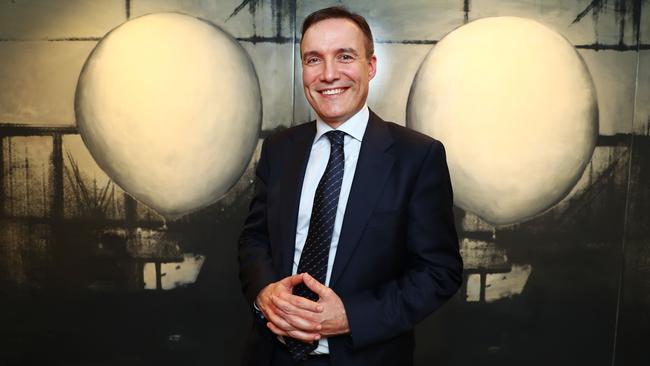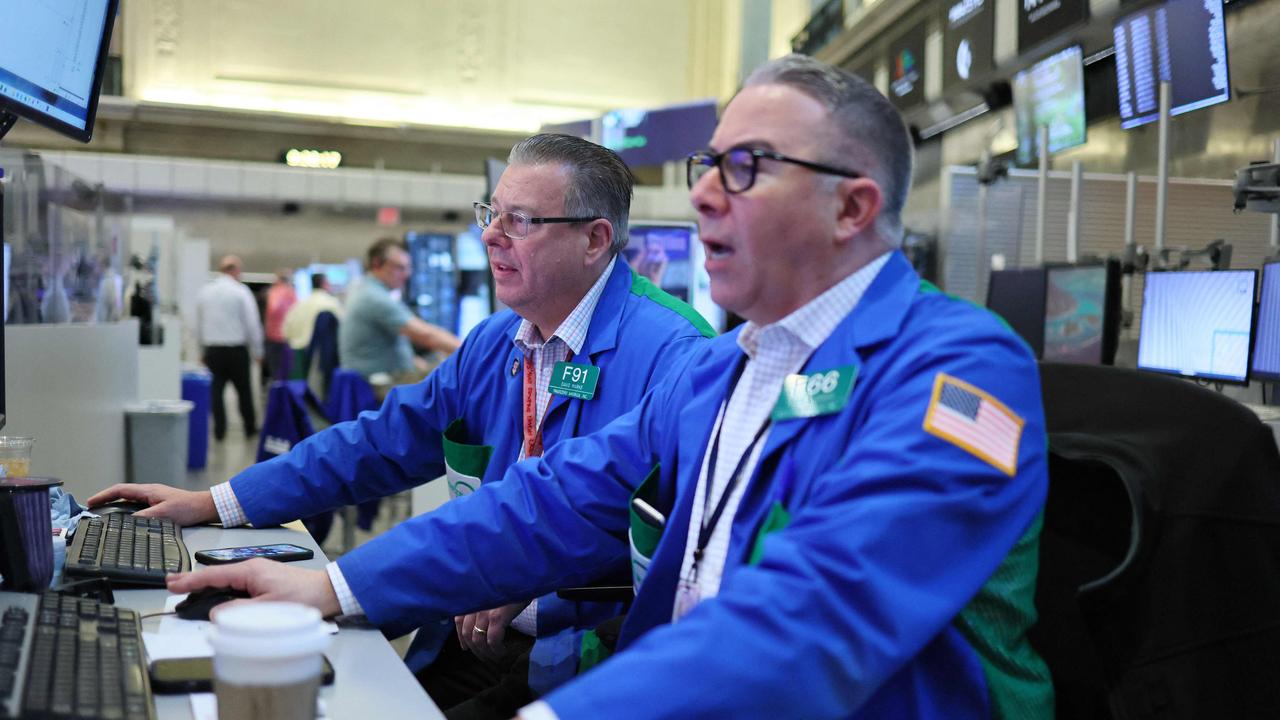Donald Trump tariffs drive fear into auto investors
A US ruling on car imports may be the next big focus for global financial markets, UBS’s Arend Kapteyn says.

A US ruling on car imports may be the next big focus for global financial markets, with Europe in the crosshairs, according to economist Arend Kapteyn.
As investors grapple with the unexpected resumption of a tit-for-tat US-China trade war after a five-month truce, they need to consider the possibility of a broadening trade war after a US investigation into car and auto parts imports, the UBS global chief economist warns.
The Trump administration’s “Section 232” investigation is likely to conclude this week that cars and possibly auto-parts imports pose a risk to US national security after President Donald Trump’s 90-day deliberation period ends on Saturday, he says.
“The big one now for the market should be car tariffs,” he told The Australian.
The US S&P 500 index dived as much as 2.8 per cent to a six-week low of 2801 points on Monday after China raised a tariff on $US60 billion ($86bn) of US imports to 25 per cent. That followed a lift in the US tariff on $US200bn worth of Chinese goods to 25 per cent on Friday.
Investors were also spooked after the US Trade Representative’s office on Monday released a list of about $US300bn worth of Chinese goods including children’s clothing, toys, phones and laptops that Trump has threatened to tax at a rate of 25 per cent.
The new tariffs could take effect by late next month, just as presidents Trump and Xi Jinping meet at a Group of 20 leaders meeting on June 28-29 in Japan.
Australia’s S&P/ASX 200 index fell as much as 1.5 per cent to a four-week low of 6203.1 yesterday and the dollar hit a four-month low of US69.4c, after the retaliation by China and the US sharemarket sell-off that pushed the VIX volatility index above its long-term average.
The dollar’s weakness also came as China’s offshore renminbi fell 1 per cent to a four-month low of 6.9185 to the US dollar.
But the Australian sharemarket pared some of its fall as S&P 500 futures bounced more than 0.5 per cent in Asian trading yesterday.
That followed hints by Trump that he’s still willing to cut a deal with China on trade. Trump said it would become apparent “in about three or four weeks” whether trade talks with China were successful.
“You never really know, right?” he said at an Iftar dinner at the White House.
“But I have a feeling it’s going to be very successful.”
But UBS’s Kapteyn warned that US tariff increases on car and car-parts manufacturers this week may add to recent volatility in global markets.
“What we think is going to happen with this global investigation into autos is that, like the steel tariffs last year, they will conclude there is a problem and they will impose a sanction on everyone, but they will then say ‘you can now apply for a waiver’,” he says.
“Our assumption in our forecast is that pretty much everyone gets a waiver, except Europe.”
European auto imports to the US currently face tariffs of just 2.5 per cent, while the EU imposes a 10 per cent duty on US exporters.
“The whole point of the investigation is to address the bilateral car deficit that they have with Japan and Europe,” Kapteyn argues. Japan may get a waiver, but “certainly Europe is not going to get a waiver”, otherwise there would be no point in the whole investigation.
The main uncertainties in his mind are around the level of the tariff he expects the US to slap on the EU, and whether or not it includes car parts.
“If you include car parts it sort of doubles the damage,” Kapteyn says.
“Our intuition is that they don’t do car parts because then they hurt a lot of US producers that are importing those parts.”
But Kapteyn notes there is already an “enormous level of uncertainty” reflected in European business surveys.
“In the German IFO survey, for example, there’s a specific car industry component that showed confidence plunged when the investigation was announced last year and it has recently gone down again because they know the announcement is imminent,” he says. “So the European car manufacturers and their investors are well aware this is coming and are very nervous about it.”
Thus, he says, it’s unclear how the broader market will respond to a US announcement on car tariffs.
“It’s not quite as important as US-Chinese bilateral trade, but it’s an important sector nonetheless,” Kapteyn says.
“The market could react negatively or people could think they know how this will be resolved and therefore not react.
“If you look globally at equity valuations, we think the German DAX is still one of the cheapest markets, even though it has risen this year.
“If the trade cycle gets better, the markets that are going to benefit from that are the big manufacturing economies like Japan and Germany. So once that happens, you really want to own not just those markets, but cyclical sectors within them.
“That implies that in Germany, for example, you would basically want to own banks and autos.”




To join the conversation, please log in. Don't have an account? Register
Join the conversation, you are commenting as Logout